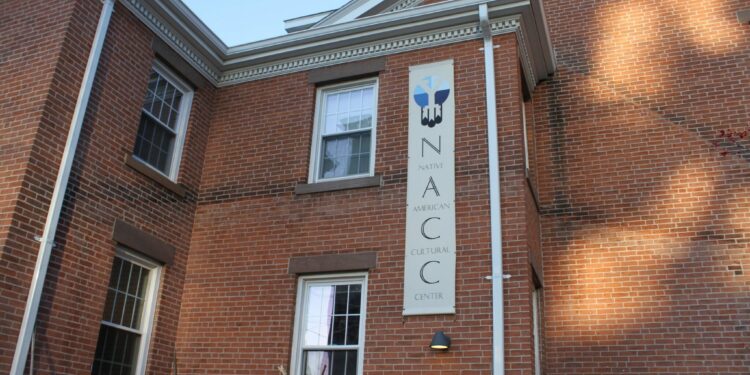The student group Indigenous Peoples of Oceania is providing community to students at Yale.
Ada Perlman
12:30 pm, Dec 01, 2023
Staff Reporter
Skakel McCooey, Contributing Photographer
When Joshua Ching ’26, a Native Hawaiian student, entered Yale College last fall, he embarked on a journey to find community.
His search began with the decision to sign up for professor Hiʻilei Hobart’s seminar, Indigenous Food Sovereignty.
“I ranked it number one because I recognized that her name was Hawaiian and I was like, ‘Oh this will be kind of cool,’” said Ching.
Ching’s start at Yale last fall coincided with Hobart’s arrival. Hobart, a professor in the Ethnicity, Race and Migration department, is the first Native Hawaiian faculty member in Yale’s Faculty of Arts and Sciences.
Ching described Hobart as one of his most important mentors in his time at Yale, and he is now her research assistant.
“It was kind of serendipitous that her start coincided with the influx of other Hawaiian and Pasifika students,” said Ching, noting the strong community he entered upon arriving at the University.
Outside the classroom this year, Ching helped to officially found the Indigenous Peoples of Oceania at Yale. He currently serves as the group’s executive director and works to provide a space for students who identify as indigenous to Oceania.
The group has also organized events such as the recent concert for Maui wildfire relief. In addition to these efforts, Ching has devoted much of his academic study to the history of his people.
“A lot of my academic work here at Yale has centered around the Pacific and Hawaii in particular. The cultures I grew up in and the histories that I’ve come to know as my own have such an important place in institutions like Yale, where there is a severe lack of not only representation but reckoning with imperial history,” said Ching.
Jairus Rhoades ’26, who directed the recent benefit concert, described this community of students as essential to his time at Yale.
“Talking with all of the Natives at the NACC felt like talking with people with truly relatable experiences and heritages,” he wrote to the News. “The constant sense of restlessness with my identity as a Samoan, Filipino, and white person saw tranquility and settlement immediately. The regulars at the NACC are some of the funniest and most beautiful groups of people I know on campus.”
This year, the Native American Cultural Center is celebrating its tenth year of existence.
The group of students has not only provided community to undergraduates, but also to Professor Hobart.
“I tell the Pasifika students often that, while they may not realize it, they are community for me, too, here in Connecticut … These students are teaching me, and those around them, what it means to bring home with you,” wrote Hobart.
The sentiment is not lost on her students. Inspired by Hobart’s seminar, Ching, along with other IPO members Kalaʻi Anderson ’25 and Connor Arakaki ’26, participated in repatriation efforts to return remains held at the Peabody Museum to their home in Hawaii last fall.
Ching described the repatriation process as an important reckoning with Yale’s complicated history with the Pacific.
Hobart also expressed gratitude for the students involved in the process.
“I was so lucky to arrive at the same time as this incredible influx of Islander students who are establishing [a] powerful, politically engaged, and culturally vibrant presence on campus,” Hobart wrote to the News. “What they are doing right now paves a path for future Pacific Islander presence here at Yale.”
Ching noted a hope to see more professors who are from the Pacific and who study the Pacific.
In addition, he expressed wanting to see more Native languages offered, noting that this is the first year that Yale is offering Cherokee. He mentioned that Stanford has taught Hawaiian language for several years and recently started a Samoan language program.
“My biggest hope for this community is that it continues at its breakneck pace in programming and outreach and that more people, both allies and Natives alike, join us in partaking in the joy that is celebrating Native stories,” wrote Rhoades.
Ching, Rhoades and Hobart all look forward to the growth and success of Indigenous Peoples of Oceania in the future.
Yet Rhoades also told the News that while he hopes the group will gain more recognition in the broader Yale community, it has already established a strong support system among its members.
“IPO, with its current leadership, is a group I would advise people to watch out for. Events happening almost every week that flush out so much of the beautiful yet endangered cultures that Pasifika communities are brimming with come at the effort of well-abled students and supportive faculty who have a passion for their community that is unique because of its smallness,” he wrote. “In these small numbers, though, we still find so much affirmation and support from the Native community because of the universality of our painful pasts.”
The Indigenous Peoples of Oceania group began in the fall semester of 2023.
ADA PERLMAN
Ada Perlman covers religious life at Yale. She is a first year in Pierson College.
Source link : https://yaledailynews.com/blog/2023/12/01/students-faculty-celebrate-founding-of-indigenous-peoples-of-oceania-cultural-group/
Author :
Publish date : 2023-12-01 03:00:00
Copyright for syndicated content belongs to the linked Source.





